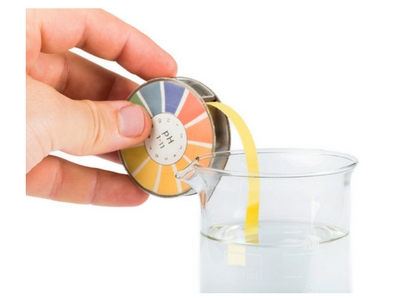
Is Alkaline Water Better For You?
By Claire Georgiou, Reboot Naturopath, B.HSc ND
Water is vital to life and something we all need to consume on a regular basis for survival, but have you heard of alkaline water? This type of water has a naturally higher pH level, which means it is less acidic (and more alkaline).
What makes water alkaline?
The higher mineral content in the water comes from sources such as magnesium, potassium, silica, calcium, bicarbonate and other minerals and that increases the pH level.
The blood and tissues of the body have a tightly controlled pH system that is required for good health. Advocates theorize that health issues from low-grade metabolic acidosis can be corrected by adding more alkaline foods and fluids into the diet. Health claims listed for alkaline water include educed systemic inflammation, supports joint health, cardiovascular health, muscle health and more.
Minerals by nature are used as buffers to reduce acidosis in the body and these minerals are normally drawn from the bones and tissues to correct and keep the blood and cells at the optimal pH level throughout the body. These minerals are sourced from the foods we eat and the liquids we consume then used and stored in the body to support nerve function, muscle function, carbohydrate, protein and fat metabolism, cellular respiration and other important functions.
Pure water has a pH level of 7 which means its neutral but with all the added compounds and many that are undesirable in our water it can affect the pH and giving it a more acidic level and a lower pH. Tap water tends to have a lower pH level at 6-7 meaning it is more acidic while alkaline water has a level of 7-9 pH.
pH levels
Acid <7 pH
Neutral 7 pH
Alkaline > 7 pH
Do we need to drink alkaline water?
No, not necessarily. Having a diet high in minerals is more important than worrying about drinking alkaline water. If you choose to purchase and drink alkaline water then essentially you are slightly increasing your mineral intake, which is a positive thing but not necessary for good health.
Alkaline water vs. juice
Only 2 percent of people in the U.S. eat enough potassium in the diet, so the other 98 percent are missing out. Potassium is important to support cardiovascular health, healthy blood pressure, kidney function, bone health and support muscle health by reducing muscle wasting particularly as we age. Potassium is predominately found in fruits and vegetables, especially avocados and green leafy vegetables.
Fresh fruit and vegetable juices are naturally alkalizing due to the high plant compounds, antioxidants and minerals that they contain. The mineral content of juice is particularly very high due to the potassium, magnesium and calcium content and these juices will be very alkalizing to the body.
Water in nature naturally contains a myriad of minerals due to the direct contact that it has in nature with rocks and other sentiments that contain natural minerals and this then exists in the water naturally. Mineral water is higher in minerals and is found to be more alkalizing then tap water.
It is important to be aware that alkaline water may not be ideal for people who are suffering with kidney disorders or who are taking certain medications for kidney disease.
People who are intensively exercising or competing in sports, could benefit from drinking alkaline water, or simply consuming juices regularly. Juicing also has the wonderful benefit of containing plant compounds that are supportive for increases in physical endurance such as nitric oxide that is found in beets and chard.
Final Thoughts
Juice is a wonderful alkaline beverage that will support good health and increase mineral intake significantly and may reduce low-grade metabolic acidosis along with eating a diet high in fruits and vegetables.